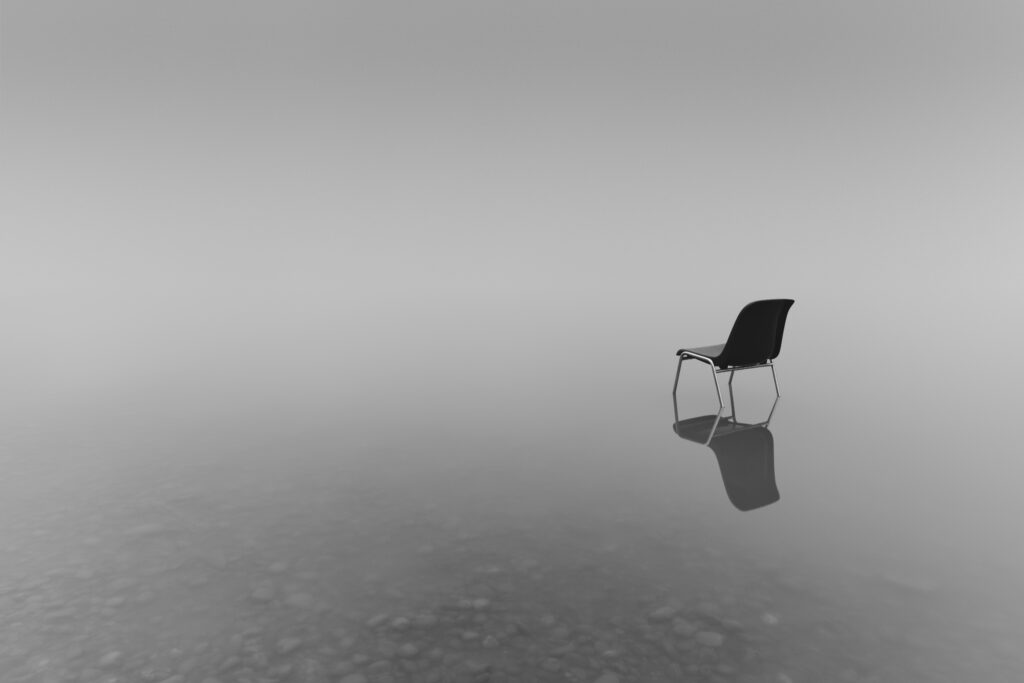“Solitude vivifies; isolation kills.” ~ Joseph Roux
There have been times where I have been so excited for a girls night or to get together with friends, family, neighbors, or coworkers. I look forward to catching up with the people I care about, getting to know new friends, and having an enjoyable time together. That said, there are times where, after a long day at work, all I want to do is go home and get into comfortable clothes and catch up on my TV shows. Humans are social creatures, yet sometimes we need to take some time for ourselves. This may be done through “alone time” or hibernation–a form of self-care–or isolation. Let’s talk about the difference between the two and when either of them might be used.
Humans are wired for connection. We thrive on having meaningful relationships. I have written about the Japanese concept of amae–our innate need to belong. Belonging is great and it feels good to connect with others. It fills our cups in a special way. There are some times, however, when it is appropriate to take time for ourselves–when we may need to step back and focus inward by having some time alone.
Hibernation is a specific kind of self-care that serves a purpose. Just like when bears hibernate, it is for a set period of time, and for a distinct purpose. Then, when they come out of hibernation, they are rested and prepared for the spring. At times, humans, too. may need to hibernate. This period may last for a couple days or longer, but the point is to purposely and intentionally withdraw from the busyness of life in order to be able to rejoin from a healthier, rested place. Hibernation is important and even necessary at times. It is okay to choose to forgo a given gathering if we feel the need–this is one way we can take care of ourselves. We may be overwhelmed, overworked, tired, stressed, or just sad. If we hibernate (take some “alone time”, “me time”, “personal time”, etc.) with the intent to recharge so that we can return to work/life/relationships more whole, it is a positive thing. During this time we can employ some stress-relieving activities and other healthy forms of self-care.
On the other side of this coin is isolation. This is essentially when we actively and purposefully choose to avoid others. We put up a wall or a barrier to separate ourselves from the outside world and we do not let anyone in. We may feel cozy and protected temporarily, but this is not a long-term solution. Sure we may feel safe and in control in the moment, but we also set ourselves up for emptiness by not connecting with other individuals in a meaningful way. After we isolate, instead of feeling recharged, we feel exhausted, anxious and guilty.
Let’s juxtapose hibernation and isolation to fully grasp the differences:
Hibernation
- Temporary
- Has a set end-date/time
- Leaves you feeling refreshed and recharged, ready to jump back in to life and relationships
- Time is spent intentionally bettering oneself
- Leads to success
- Healthy, helpful to one’s well being
- Fosters connection in the future
- The desire to take hibernation is the self’s needs surfacing in order to avoid future harm or ineffectiveness
- Need for time alone may present itself periodically
- Comes from a nurturing place within oneself
- Is a form of self-care
“ISOLATION”
- Is generally more long-term
- Has no set end-date/time
- Leaves you feeling sad, lonely, empty, cynical about life and relationships, which produces a cycle of further isolation
- Time is spent avoiding most everyone for no specific reason. Time spent in isolation is not purpose-filled or intentional
- Linked to heightened rates of depression and anxiety
- Unhealthy, harmful to one’s well being
- Decreases chances of future connection
- Is subconsciously a punishment
- Need for isolation is never truly helpful
Hibernation is a productive, planned way that we can recharge and regroup in order to be healthy and happier. Isolation is a way that we shut out connection and numb out to the world. Though the two may look similar to an outsider, to the person experiencing them, they are very different.
The next time we feel the need to cancel our outing, let’s examine what we feel we truly need by avoiding other humans. Craving a night alone to soak in the tub, work out, read a good book, or go to bed early is healthy and helpful. Shutting others out, for an extended period of time, with no real purpose, can be detrimental to our emotional health. Instead, take time to hibernate and then–when you are ready–reconnect with your world. If you are finding yourself stuck in a perpetual loop of isolation, and want out, please seek help from a mental health professional.
Melissa Cluff is a Licensed Marriage and Family Therapist based in North Texas, providing face-to-face and telehealth therapy options to clients in Texas.
References:
- Brainy Quote: “Isolation”
- Cluff Counseling: “8 Unique Ways to Practice Self-care”
- Cluff counseling: “Exercise….It’s Not Just Good for the Body!”
- Cluff Counseling: THE LOSSES YOU DIDN’T KNOW YOU WERE GRIEVING
- Cluff Counseling: THE MOST FORGOTTEN OF THE HUMAN NEEDS
- Cluff Counseling: “The Key to Slowing Down in a Fast-Paced World”
- Cluff Counseling: SIMPLE WAYS TO STRENGTHEN THE CONNECTION WITH THE MAN IN YOUR LIFE
- Cluff Counseling: SIMPLE WAYS TO STRENGTHEN THE CONNECTION WITH THE WOMAN IN YOUR LIFE
- Cluff Counseling: SIMPLE WAYS TO STRENGTHEN THE CONNECTION WITH YOUR CHILDREN
- Cluff Counseling: RELATIONSHIP REPAIR 101
- Cluff Counseling: “Self-care: Is it Selfish?”
- Cluff Counseling: “Sleep…It Does a Body Good!”
- EveryDay Health: 76 Top Self-Care Tips for Taking Care of You
- HealtiNation: Alone Time vs. Isolation: How to Find the Balance
- PearlPoint: 10 Self-Care Tips to Cope with Isolation and Stress


